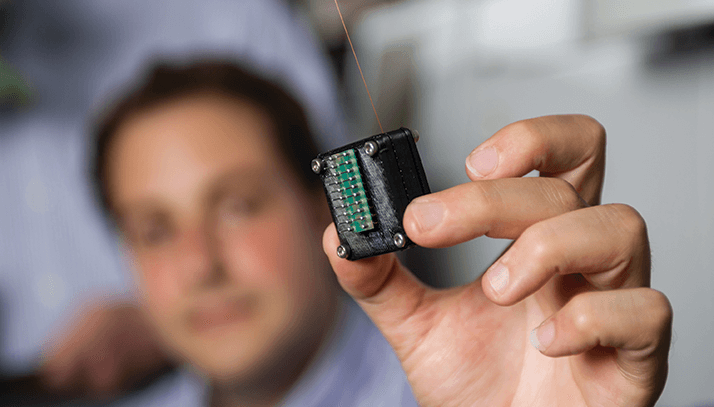US farmers are estimated to lose around 12 percent of their crops every year to disease. Typically, they look for discolored or wilting leaves as tell-tale signs but, by the time such physical symptoms manifest, the pathogen may have already spread to nearby plants. Now, a micro GC device (roughly the same size as a 9-volt battery) developed by Georgia Tech Research Institute (GTRI) to detect VOCs emitted by plants and pathogens looks set to improve upon sharp eyes. According to Gary McMurray, division chief of GTRI’s Food Processing Technology Division, dozens of such micro GCs could be fitted onto a ground robot, which a farmer could then use to take samples from plant to plant, with the aim of detecting disease before it runs riot.

“It is predicted that by the year 2050, we will need 75 percent more food,” says McMurray, division chief of GTRI’s Food Processing Technology Division, “We felt that eliminating losses on the farm would be a good first step to meeting that need, which is why we set out on this project.” “The science behind early detection of diseases and pests in crops is fairly well understood, but the details are still missing. The ability to link data from the micro-GC to a biological process in the plant is still challenging,” says McMurray. Indeed, changes in temperature, humidity, soil moisture and nutrient levels can all affect VOCs emitted by plants, so researchers will need to establish indicative chemical signatures by studying VOCs released under different environmental conditions.
Field tests are planned for the summer and will use a bench top model of the micro GC to test peach trees for Peachtree Root Rot disease, working with the US Department of Agriculture’s research service. The next important step beyond that will be to integrate the micro GC into an autonomous robot suitable for crop field sampling and analysis, a task that will involve several other collaborators. Agriculture isn’t the only potential application for the micro GC. “I think it has a very bright future,” says McMurray, “People are very interested in this type of device for a variety of applications, including food safety, environmental monitoring, detection of explosive gases, and so on. Our ability to move a technology from the laboratory into the field is always a significant step forward. In time, many of the current applications for a traditional GC could be transferred to this new technology.”
